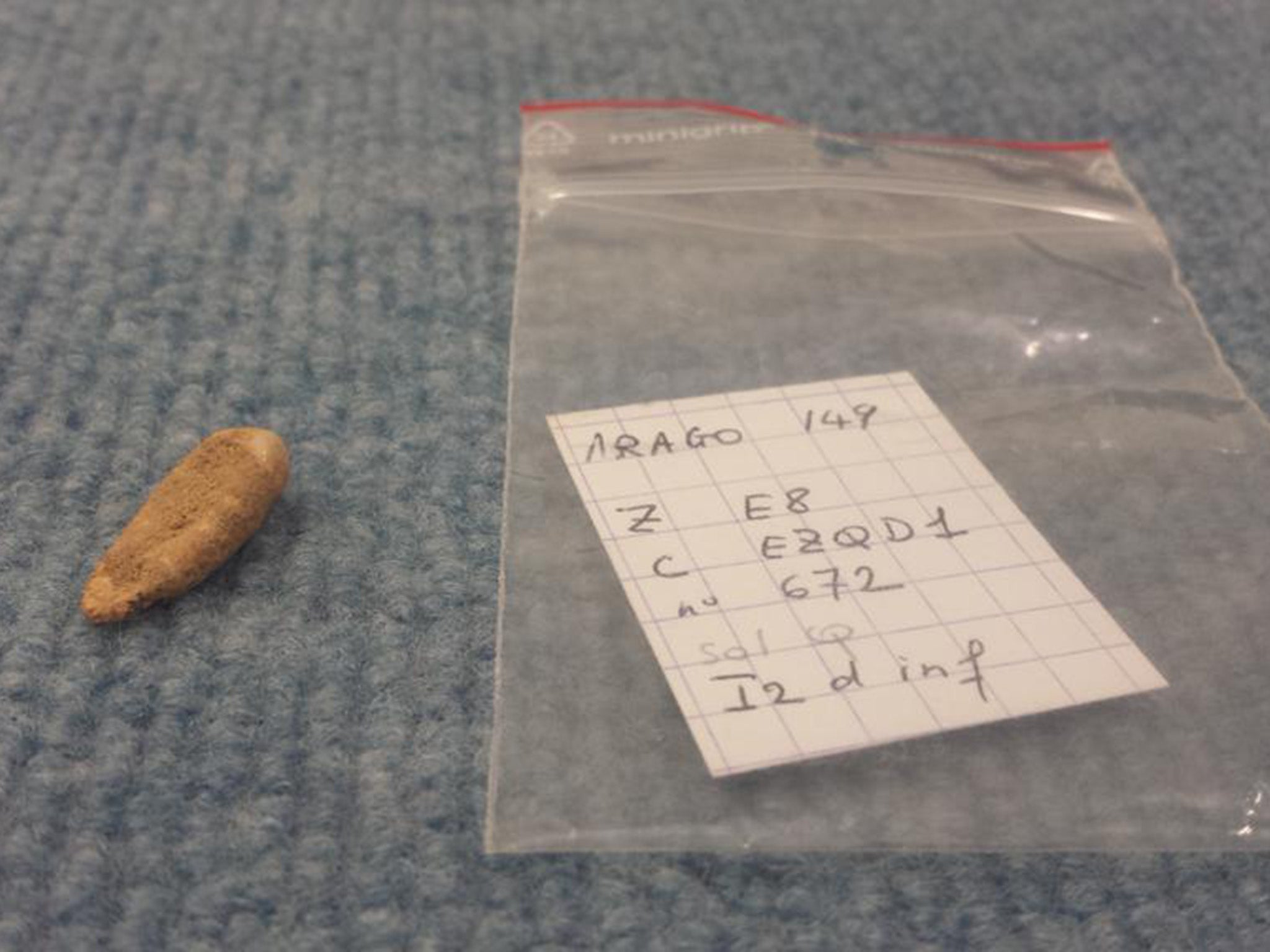French students find human tooth which is at least 550,000 years old
The tooth could provide an important missing piece in the jigsaw of knowledge about early human settlement of Europe

Your support helps us to tell the story
From reproductive rights to climate change to Big Tech, The Independent is on the ground when the story is developing. Whether it's investigating the financials of Elon Musk's pro-Trump PAC or producing our latest documentary, 'The A Word', which shines a light on the American women fighting for reproductive rights, we know how important it is to parse out the facts from the messaging.
At such a critical moment in US history, we need reporters on the ground. Your donation allows us to keep sending journalists to speak to both sides of the story.
The Independent is trusted by Americans across the entire political spectrum. And unlike many other quality news outlets, we choose not to lock Americans out of our reporting and analysis with paywalls. We believe quality journalism should be available to everyone, paid for by those who can afford it.
Your support makes all the difference.Two young archeological volunteers have uncovered the oldest human fragment ever found in France – an adult tooth which is at least 550,000 years old.
The tooth, found last week at Tautavel in the eastern French Pyrenees, could provide an important missing piece in the jigsaw of knowledge about early human settlement of Europe.
The oldest human body part ever found in Europe, a jawbone uncovered in Germany in 1907, was 600,000 years old. The oldest human remains previously found in France were 450,000 years old.
The tooth, an adult incisor, was found by two teenaged volunteers during a dig at the Caune de l’Arago caves at Tautavel near Perpignan. The site is already celebrated as the home of “Tautavel Man”, a 450,000 years old Homo Erectus discovered in 1969.
“A large adult tooth - we can't say if it was from a male or female - was found during excavations of soil we know to be between 550,000 and 580,000 years old, because we used different dating methods,” the paleoanthropologist Amélie Viallet said. “This is a major discovery because we have very few human fossils from this period in Europe.”
“It’s a missing piece in a puzzle which could help us to answer a crucial question,” said Ms Viallet, from the Paris natural history museum. “Did the emergence of Neanderthal Man, 120,000 years ago, come from a single human line or not?”
She described the tooth, named Arago 149, as a “very worn” central incisor from a lower jaw. Over 600,000 prehistoric fragments or objects have been found at the site in the last 50 years.
However, explorations have only just begun in the part of the site which yielded the tooth. Arrcheologists hope that many other finds will follow.
Homo Sapiens is believed to have descended from Homo Erectus. The oldest anatomically modern human remains, found in Africa, go back around 200,000 years.
The celebrated French paleo-anthropolohist, Yves Coppens, said: “This tooth is certainly 550,000 years old. If it had been brought from somewhere else we would have known it. Almost certainly, its owner lost the tooth at exactly that spot.”
Join our commenting forum
Join thought-provoking conversations, follow other Independent readers and see their replies
Comments